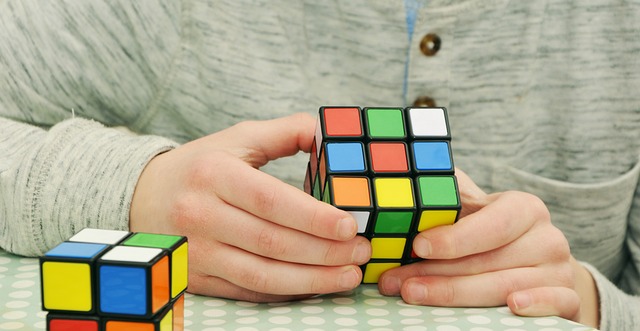Understanding the Concept of a Healthy Self-Relationship
Developing a healthy relationship with yourself may sound like an abstract concept, but it’s remarkably concrete. It lays the foundation for every relationship you form, whether with others or with your environment. So, what does it mean to cultivate this vital aspect of personal development? At its core, a healthy self-relationship signifies an appreciation for who you are, flaws included. It’s about fostering a supportive inner dialogue that empowers you to embrace your strengths while actively working on your self-improvement journey.
A great first step is recognizing the detrimental messages that society often reinforces. From unrealistic beauty standards to toxic productivity culture, many people find themselves battling with feelings of inadequacy. This struggle can spiral into negative self-talk, which doesn’t just erode self-esteem but also impacts mental health over time. When we focus on developing a healthy self-relationship, we actively challenge these negative narratives. We begin to ask ourselves, “What do I genuinely value about myself?” rather than allowing external factors to dictate our self-worth.
Moreover, a healthy self-relationship offers profound benefits that radiate into every area of life. When you value yourself, you set healthier boundaries with others. You make choices that reflect your true desires instead of simply accommodating the expectations of others. This self-validation creates a ripple effect, allowing you to interact with the world in a more authentic, confident way, ultimately leading to better relationships, increased career success, and improved mental wellness.
Building Self-Awareness
Self-awareness serves as a cornerstone in the journey toward fostering a healthy self-relationship. It allows you to step back and scrutinize your thoughts, emotions, and behaviors without judgment. When you practice self-awareness, you become equipped to recognize both your positive attributes and areas for growth. This critical examination can lead to deeper self-love, as it encourages an understanding of why you act or react in certain ways.
How do you cultivate this self-awareness? Start with simple practices like mindfulness meditation. Spend just a few minutes each day in quiet reflection, focusing solely on your breath. You’ll begin noticing various thoughts and feelings. Acknowledge these inner dialogues without attachment. Over time, this practice helps you to detach from negative narratives and recognize patterns that may no longer serve you.
Journaling also helps immensely in this regard. By writing down your thoughts and experiences, you provide an outlet for emotional expression. You allow yourself a safe space to explore your feelings. When reviewing your journal entries, you might notice recurring themes, both positive and negative. This insight can help clarify which aspects of your inner relationship need attention or nurturing.
Ultimately, developing self-awareness doesn’t require you to change who you are at your core. Instead, it guides you to become more attuned to and accepting of your authentic self. This acceptance is crucial for fostering a healthy self-relationship, as you learn to confront your flaws with compassion rather than criticism.
Practicing Self-Love
Self-love is often mistaken for self-indulgence, but in reality, it’s about establishing respect and care for your own well-being. When you cultivate self-love, you invest time and effort into understanding what makes you genuinely happy and fulfilled. This investment goes hand in hand with developing a healthy self-relationship. Start by acknowledging your achievements, both big and small. Society often glorifies monumental success, neglecting the everyday victories that shape who we are.
Imagine celebrating your decision to take a break from work or your commitment to exercise regularly. These small wins matter. They reinforce your worth and validate your experiences. Self-love also involves being kind to yourself during moments of failure. Instead of beating yourself up over mistakes, view them as opportunities for growth. This shift in perspective not only boosts your self-esteem but also lays the groundwork for resilience in the face of adversity.
Another effective way to practice self-love is through affirmations. These positive statements can counteract negative self-talk. When you regularly affirm your worth, you gradually reprogram your inner dialogue. For example, say, “I am enough,” or “I deserve happiness.” The more you embrace these affirmations, the more your subconscious mind will accept them as truths, promoting a healthy self-relationship.
Setting Boundaries for Better Relationships
Effective boundaries can transform your life and significantly enhance your relationship with yourself. When you establish clear boundaries, it signifies a commitment to self-respect and self-care. Setting boundaries means communicating your needs, whether in personal relationships or professional settings. This behavior reinforces the idea that your time and energy are valuable.
Start by evaluating areas in your life where you feel overburdened or drained. Once you identify these situations, practice saying “no” when necessary. This action may feel uncomfortable initially, but it’s essential for maintaining a healthy self-relationship. Instead of succumbing to guilt, remind yourself that setting boundaries is a loving act—for both yourself and others. By honoring your needs, you enhance your emotional resilience, ultimately leading to more fulfilling interactions.
You can also implement emotional boundaries. This practice involves protecting your emotional well-being from outside influences. For instance, if someone consistently brings negativity into your life, it’s crucial to distance yourself from that energy. Create space for positivity and support. Building such emotional boundaries reinforces the idea that your internal world is sacred, deserving of protection and care.
Embracing Personal Growth
Personal development plays a pivotal role in cultivating a healthy self-relationship. It encourages a lifelong journey of self-improvement and curiosity. Engaging with personal growth often entails stepping outside your comfort zone, which can feel intimidating but offers significant rewards. Begin by exploring new hobbies or interests that ignite your enthusiasm. Taking risks fosters a sense of adventure and excitement, reminding you that life is multifaceted.
Consider setting specific, achievable goals. Perhaps you want to learn a new language or develop a new skill. Write down these goals and devise a plan to achieve them. Celebrate your progress, no matter how small, as this reinforces positive behavior and attitudes toward yourself. Focusing on personal development helps you appreciate and embrace change, further nurturing your self-love.
Personal growth also includes seeking professional help when necessary. Therapy or coaching can offer valuable insight into your patterns of thought and behavior. By engaging with a qualified professional, you gain tools for reevaluating your relationship with yourself. You don’t have to face challenges alone; support is available, and seeking it can empower you to make transformative changes.
Cultivating Mindfulness and Gratitude
Mindfulness and gratitude are two powerful practices that can dramatically enhance your healthy self-relationship. Mindfulness involves being present in the moment without judgment. This practice helps you become attuned to your thoughts and emotions, allowing you to respond thoughtfully rather than react impulsively. Incorporate mindfulness into your daily routine by setting aside a few minutes each day to focus on your breath or engage in mindful observation. This can be as simple as appreciating the beauty of nature or the warmth of sunlight on your skin. Each moment of mindfulness reminds you to slow down and reconnect with your inner self.
Gratitude, on the other hand, encourages you to focus on the positives in your life. It shifts your attention away from what you lack and directs it toward appreciating what you have. Start a gratitude journal where you list three things you’re thankful for each day. This simple practice can help you develop a more positive self-relationship, reinforcing the idea that you deserve joy and fulfillment.
Additionally, practicing gratitude can enhance your resilience. When faced with challenges, recalling what you appreciate about yourself and your life can help lift your spirits. It acts as a buffer against negativity, reminding you of your strengths and capabilities. By incorporating mindfulness and gratitude into your life, you create a harmonious internal environment that nurtures self-love and acceptance.
Creating a Supportive Environment
The environments we inhabit profoundly affect our self-relationship. Surrounding yourself with positivity and encouragement nurtures your sense of self-worth. Evaluate your current social circles; do they uplift and support you, or do they drain your energy? It’s essential to seek relationships that foster a sense of belonging and validation. A supportive community can act as a mirror, reflecting the positive aspects of yourself that you may take for granted.
Moreover, create a physical space that reflects this supportive energy. Declutter your living space, and fill it with items that resonate with your self-identity. This might include inspirational quotes, artwork that uplifts you, or photographs of cherished memories. Your physical environment should serve as a sanctuary where you feel safe to explore and express your true self.
Also consider engaging in communities that share your interests or values. Whether it’s a book club, a sports team, or an online forum, these connections can reignite your passion and enhance your sense of belonging. By intentionally creating a supportive environment, you lay down roots for a healthy self-relationship to flourish.
FAQ
1. What is a healthy self-relationship?
A healthy self-relationship involves valuing yourself while accepting your flaws. It means fostering self-love, self-awareness, and personal development, allowing you to interact authentically with the world.
2. How can I practice self-love?
Self-love can be practiced by celebrating small achievements, engaging in positive self-talk, and using affirmations to counter negative thoughts about yourself.
3. What role does self-awareness play in personal development?
Self-awareness helps you recognize your strengths and weaknesses. It allows you to understand your behaviors and emotions better, enhancing your journey toward personal growth.
4. Why are boundaries important in relationships?
Boundaries protect your emotional well-being and reinforce your self-respect. They empower you to allocate your time and energy more effectively, leading to healthier interactions.
5. How can mindfulness improve my self-relationship?
Mindfulness encourages you to be present and aware of your thoughts and feelings without judgment. This practice helps you respond thoughtfully rather than react impulsively, nurturing a healthier self-relationship.



